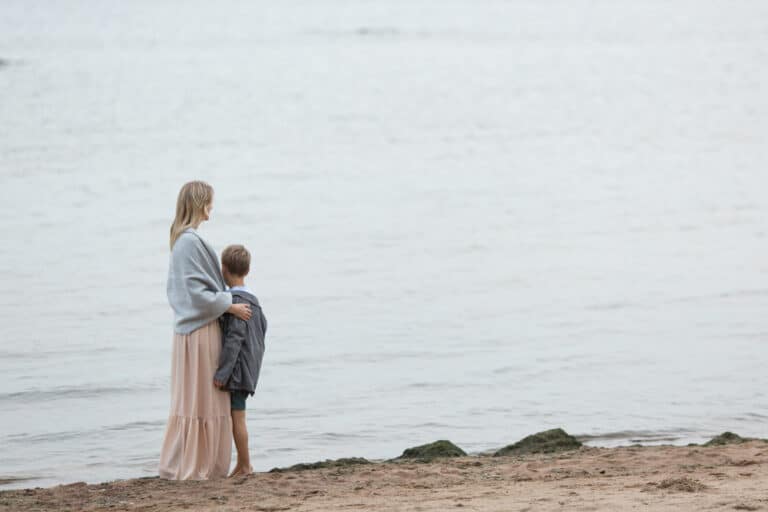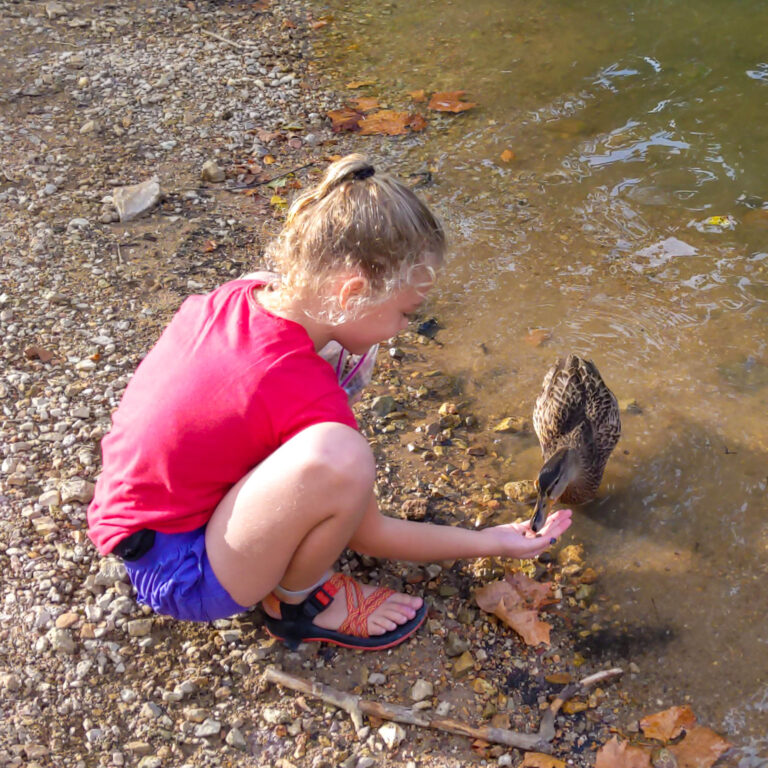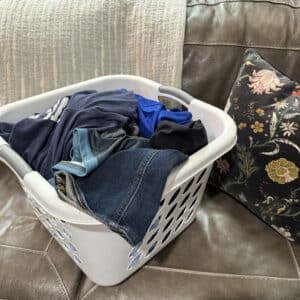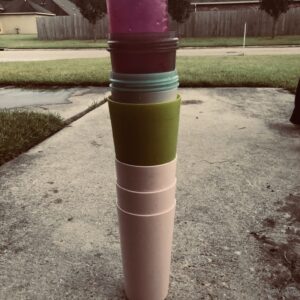She comes to me with teary eyes, a shaky voice, and stomping feet, “This is dumb! Everything is terrible! I’m never going to school again!”
My 13-year-old daughter is prone to drama. It doesn’t take much for her to fly off the handle these days. One minute she’s happily crafting at the table and the next moment her mood has made such a drastic change I have whiplash from it.
My first response is to say the easiest—and least helpful—words, “Just calm down.” But I know from my own experience that those words have never helped anyone just calm down.
Along with my daughter’s teenage hormones is the underlying anxiety that seems to overshadow every situation. I recognize it because I have experienced it too.
I have lived with an anxiety disorder for over 30 years. Research has shown that children of a parent with an anxiety disorder have a 33 percent higher chance of having it themselves. This makes me fearful that my children may have to live with it, too. I can despair over the fact that maybe my kids will have to navigate life with the mental health diagnosis, or I can give what I wish I would have received in my teenage years as my own mental illness began to take root.
RELATED: Until I Had An Anxious Child, I Didn’t Understand
It feels tricky navigating these waters from this side of the boat. I have found a way to function, and even sometimes thrive, with my mental illness. But, trying to help someone do the same, especially my own child, feels a bit more cumbersome. We are the same, yet we are different. Trying to communicate that I care without assuming that I understand is a tricky path. But it’s one we can maneuver by leading with compassion.
If you find yourself in a similar situation, maybe not with your own mental health disorder, but maybe one you see in your child, there is hope. We can help our children through anxious thoughts that seem to control their lives when we lead with compassion and not assumption.
Don’t belittle their anxiety. Though whatever they are expressing to you seems like not that big of a deal, do not call it that. To them, it feels huge and hard to even look past. By saying words like, “Just calm down,” “Don’t worry about that,” or “It’s no big deal,” you communicate assumption instead of compassion. It belittles their problem instead of empathizing with it.
When your child starts expressing their anxiety about something, just listen. Fight the urge to fix it. Sometimes anxiety can cause us to be stuck in a loop of negative thought that is all in our head. Giving voice to the worry can help break the loop. Often they just need to land the plane and get their thoughts to stop circling inside their head and have a solid place to set them down. Talking it out loud to someone who will listen and not judge can help.
Get them moving. Fresh air and movement have been clinically proven to help the anxious mind. When you start to notice your child becoming more anxious, offer to go on a bike ride or a walk with them and leave all the screens and devices at home. Take a walk through a park or woods and encourage deep breaths and exploration. When we are anxious, our breathing is shallow without us even realizing it. Focusing on deep breaths that go all the way into our lungs helps get more oxygen into our bodies and communicates to the brain that it’s not in fight or flight mode and that it can slow down and relax. Exploring outside and what is around us in nature helps us see ourselves in the big picture. Marveling at how even the smallest creature can live in this big world can help us see that we have our place here too.
RELATED: Dear Anxious Child, I Will Fight For You
Help them form a power phrase. Anxiety is not easily removed. Sometimes when we have landed the plane on a certain anxious thought, it will take off again when we least expect it, often at night. Help your child come up with a power phrase that they can repeat to themselves when anxious thoughts start to come. Usually, a two-line phrase that is about five or six syllables each is a helpful number. As they repeat this power phrase to themselves, they should focus on breathing deeply in and out. Encourage them to write it down and post it in their room or slip a small note of it into their lunch box. Often we know the truth, but it’s hard to find it when our mind is screaming lies that make us anxious. This power phrase can be a way to remind them of the truth.
Anxiety can overrun our life—or our children’s lives—but it doesn’t have to. The next time your child comes to you with anxious thoughts, fight the urge to tell them to calm down. Instead, take small, intentional steps in the midst of their anxious moment to help your child feel seen, heard, and understood.
It’s not a magic formula to make it all go away, but it’s purposeful acts of compassion that can help your child navigate through their thoughts and feelings and make this world a little less anxiety-inducing in the process.

If you liked this, you'll love our book, SO GOD MADE A MOTHER available now!
Order NowCheck out our new Keepsake Companion Journal that pairs with our So God Made a Mother book!
Order Now
















